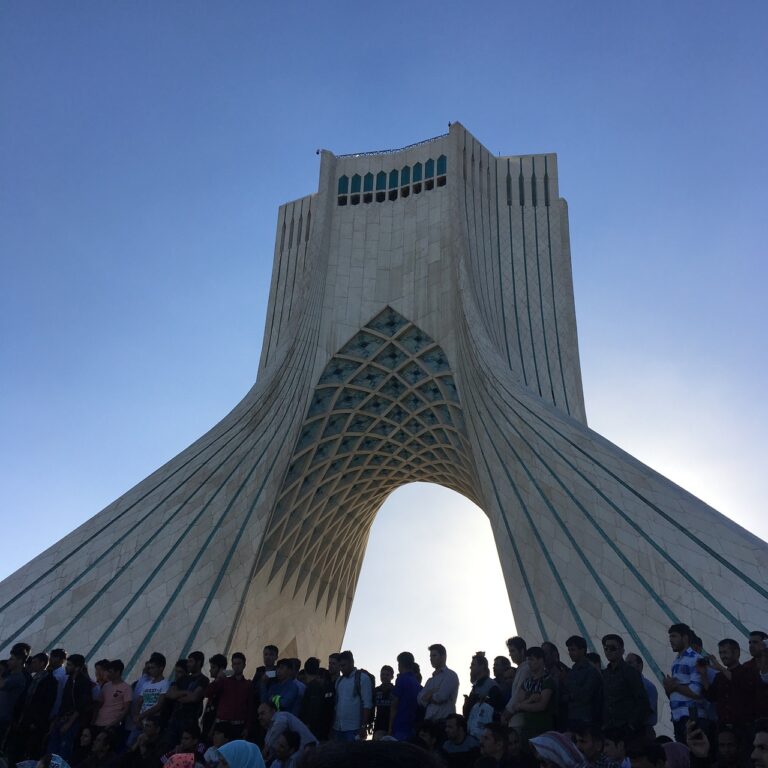
Washington D.C./Beijing/Moscow: As the United States President Joe Biden opened the first-ever ‘Summit for Democracy’, a forum for leaders from around the world to discuss the challenges and opportunities facing democracies in the 21st century, China reacted claiming the US “is politicizing, instrumentalizing and weaponizing democracy”.
Russia had earlier termed the “democratising rhetoric” coming from Washington as “utterly hypocritical”, and urged all foreign partners not to engage in “democracy promotion,” not to draw new dividing lines, but to return to the compliance with international law and to enforce the principle of the sovereign equality of states, which is enshrined in the UN Charter. “It embodies the foundation for a democratic world order that the US and its allies do not accept,” Russia had claimed.
Biden said today at the Forum: “So, over the next two days, we’re bringing together leaders from more than 100 governments alongside activists, trade unionists, and other members of civil society, leading experts and researchers, and representatives from the business community, not — not to assert that any one of our democracies is perfect or has all the answers, but to lock arms and reaffirm our shared commitment to make our democracies better; to share ideas and learn from each other; and to make concrete commitments of how — how to strengthen our own democracies and push back on authoritarianism, fight corruption, promote and protect human rights of people everywhere. To act. To act.”
China claimed that “Democracy is a right for all nations, not a prerogative reserved to a few…It would be totally undemocratic to measure the diverse political systems in the world with a single yardstick or examine different political civilizations from a single perspective”.
Responding to reports that the US was seeking consensus among participating countries on the “Alliance for the Future of the Internet” aimed at establishing an “open, trusted, and secure” Internet order based on US standards, at the “Summit for Democracy”, Chinese foreign ministry spokesperson Wang Wenbin said in Beijing today that the “so-called “Alliance for the Future of the Internet” pursued by the US is another example of how the US divides the Internet, seeks technological monopoly and cyber hegemony, and oppresses scientific and technological development of other countries”.
China accused the US of imposing its standards on others and restricting or taking away the right to independently choose cooperative partners and develop the Internet by countries, especially developing countries, thus stopping them from enjoying the dividend of digital economy and technological progress.
“The so-called Alliance is actually an old agenda taking on a new form under the pretext of democracy and to create an exclusive bloc. It is an resemblance of the US’ Clean Network program that has long lost support. While claiming to build an “open” Internet, the US is creating confrontation and dividing the Internet. It pushes for this Alliance in an attempt to plant ideological bias and zero-sum mentality in the supply, industrial and information chains of the Internet. It will seriously distort the market,” Wenbin claimed.
China further claimed that the “Summit for Democracy” has nothing to do with international justice or democracy, but rather about serving the US’ own selfish gains and maintaining its hegemony. The political manipulation of the US in the name of democracy will only be met with wide opposition in the international community.
Earlier, on December 1, 2021, Russia too had issued a statement in connection with the summit for democracy claiming that”the track record and reputation of the United States, Great Britain, and the EU member states in terms of respecting democratic rights and freedoms at home, as well as in the international arena, are, to put it mildly, far from ideal”. Russia had stated that “the United States and its allies cannot and should not claim the status of a “beacon” of democracy, since they themselves have chronic problems with freedom of speech, election administration, corruption and human rights”.
Refering to the social media platforms controlled by US corporations, Russia claimed they were widely used for disinformation, propaganda and manipulation of public opinion. Mass electronic surveillance by intelligence agencies and the IT corporations that collaborate with them has become a reality of daily life in Western states, it stated.
Russia further went on to state that while fashioning itself as the “global democratic leader”, the United States had for many years led the world in the number of prisoners (“over 2 million people”). It further stated that the democratising rhetoric coming from Washington “is not only completely disconnected from reality, but is also utterly hypocritical…Claiming to be on the right side of ideology and morality, the United States and a small group of its allies have undermined confidence in themselves with aggressive actions on the world stage under the banner of “promoting democracy.” There were more than a dozen military interventions and attempts at “regime change” over the past 30 years. Provocative actions in the military-political sphere often flagrantly violate international law, and cause only chaos and destruction”.
While opening the Summit of Democracy in Washington DC today, President Biden announced the establishment of the Presidential Initiative for Democratic Renewal, a set of policy and foreign assistance initiatives that build upon the U.S. Government’s significant, ongoing work “to bolster democracy and defend human rights globally”.
The White House stated that the United States had long worked to strengthen democracy and advance respect for human rights. “Not only is this the right thing to do, it is in the United States’ national security interest, because strong, rights-respecting democracies are more peaceful, prosperous, and stable. Democracies also make stronger partners for the United States, as we work together to address the world’s most pressing international challenges, from combating the climate crisis to preventing the next pandemic,” the White House stated.
The Presidential Initiative for Democratic Renewal represents a significant, targeted expansion of U.S. Government efforts to defend, sustain, and grow democratic resilience with likeminded governmental and non-governmental partners. In the coming year, the United States is planning to provide up to $424.4 million toward the Presidential Initiative, working with Congress and subject to the availability of appropriations. These efforts will center on five areas of work crucial to the functioning of transparent, accountable governance:
1. Supporting Free and Independent Media
- Bolstering Independent Media. Under the Presidential Initiative, USAID will provide up to $30 million to the International Fund for Public Interest Media, a new multi-donor fund designed to enhance the independence, development, and sustainability of independent media, especially in resource-poor and fragile settings. Additionally, USAID will provide up to $5 million to launch a Media Viability Accelerator, which will improve the financial viability of independent media outlets in both under-developed and more-developed media markets.
- Protecting Journalists Physically, Digitally, and Legally. To guard the essential work of journalism from spurious legal claims aiming to silence legitimate work, USAID will provide up to $9 million to support a global Defamation Defense Fund for Journalists, which will offer liability coverage to investigative reporters and their organizations. In parallel, the State Department will provide up to $3.5 million to establish a Journalism Protection Platform, which will provide at-risk journalists with digital and physical security training, psychosocial care, legal aid, and other forms of assistance. And the U.S. Government will increase its engagement with the Media Freedom Coalition, an intergovernmental partnership working to advocate for media freedom and the safety of journalists worldwide.
2. Fighting Corruption
- Supporting Anti-corruption Change Agents. To support and connect anti-corruption actors across civil society, media, academia, and labor organizations, USAID will provide up to $5 million to launch the Empowering Anti-Corruption Change Agents Program, which will promote protective measures for whistleblowers, civil society activists, journalists, and others at risk due to their anti-corruption work. The State Department, joined by other donors, will build on its support for the Global Anti-Corruption Consortium (GACC) by providing up to $6 million to enhance the GACC’s work to connect media and civil society organizations with one another, expose ill-gotten gains, and support legal or policy changes in support of anti-corruption objectives.
- Curbing Corruption through Strategic and Regulatory Action. Earlier this week, the U.S. Government unveiled its first-ever United States Strategy on Countering Corruption, which provides a blueprint for cracking down on corruption at home and abroad. In support of this strategy, the Treasury Department will enact regulations to increase transparency in the U.S. real estate market by establishing reporting requirements for those closest to real estate transactions. In parallel, the State Department, working with the Departments of Treasury and Justice, will provide up to $15.1 million to launch the Democracies Against Safe Havens Initiative, which will work to build the capacity of partner governments to deny corrupt actors the ability to hide ill-gotten gains through anti-money laundering measures, to encourage like-minded partners to adopt anti-corruption sanctions and visa restriction regimes, and to detect and disrupt complex corruption schemes.
- Innovating and Partnering to Combat Corruption. To identify novel approaches to address transnational corruption and its enablers, USAID will provide up to $15.7 million to launch the Combating Transnational Corruption Grand Challenge, a partnership platform to crowd-source innovative solutions from businesses, technologists, philanthropies, and other actors.
- Strengthening Anti-Corruption Ecosystems. To enhance partner countries’ ability to build resilience against kleptocracy and illicit finance, including by supporting beneficial ownership disclosure, strengthening government contracting and procurement regulations, and improving anti-corruption investigation and disruption efforts, USAID will provide up to $11.5 million to launch a Global Accountability Program. Additionally, to advance the fight against corruption at transitionary moments such as during political openings, USAID will provide up to $17.6 million for an Anti-Corruption Response Fund, and the State Department will provide up to $6.5 million to establish a Global Initiative to Galvanize the Private Sector as Partners in Combatting Corruption, to energize and institutionalize existing public sector anti-corruption engagement with the business community.
3. Bolstering Democratic Reformers
- Empowering Historically Marginalized Groups and Ensuring All Have a Say in Democracy. To advance the civic and political leadership of women, USAID and the State Department will provide up to $33.5 million to launch the Advancing Women’s and Girls’ Civic and Political Leadership Initiative, which will help facilitate the full and safe exercise of women’s rights and representation. The State Department will also provide up to $5 million to launch the Global LGBTQI+ Inclusive Democracy and Empowerment (GLIDE) Fund, a new program under the Global Equality Fund that will facilitate the participation and leadership of LGBTQI+ community members in democratic institutions.
- Supporting Activists, Workers, and Reform-Minded Leaders. Responding to the increased threat against human rights defenders and activists globally, the State Department will provide up to $10 million for Lifeline: Embattled CSOs Assistance Fund, a multilateral initiative which supports civil society organizations under threat as a consequence of their democracy and human rights work. The State Department will also provide up to $1 million to establish the Bridging Understanding, Integrity, and Legitimacy for Democracy (BUILD) Initiative, which will lay the groundwork for providing career professionals in closed political spaces the skills and resources to navigate democratic openings when they occur. USAID will provide up to $15 million to launch the Powered by the People initiative, which will assist nonviolent social movements by increasing coordination through exchanges, seed grants, and engagement with younger pro-democracy actors. Additionally, the Departments of Labor and State, and USAID, will provide up to $122 million to establish a Multilateral Partnership for Organizing, Worker Empowerment, and Rights (M-POWER), which will help workers around the world claim their rights and improve wages and conditions by strengthening democratic and independent worker organizations and supporting labor law reform and enforcement.
4. Advancing Technology for Democracy
- Advancing an Open, Interoperable, Reliable, and Secure Internet. The United States embraces a vision of an Internet that is open, interoperable, reliable, and secure, and reaffirms our commitment to protecting and respecting human rights online and across the digital ecosystem. The use of digital technologies should reinforce, not weaken, democracy and respect for human rights; offer opportunities for innovation in the digital ecosystem, including businesses large and small; and maintain connections between societies. To achieve this vision and maintain a high level of security, privacy protection, stability, and resilience of the technical infrastructure of the Internet, the U.S. Government will work with partners to protect and fortify the multi-stakeholder system of Internet governance. As part of this effort, the United States will work to strengthen the Freedom Online Coalition (FOC), a multi-stakeholder effort to support Internet freedom and promote human rights online. The U.S. Government will seek not only to expand FOC membership, but also to deepen the Coalition’s diplomatic efforts to address the challenges and opportunities of digital technologies.
- Expanding Digital Democracy Programming. To assist partner countries in realizing the benefits of digital technologies that support democratic values and respect human rights, rather than undermining them, USAID will provide up to $20.3 million to build on programming supporting open, secure, and inclusive digital ecosystems. This programming will help governments enshrine democratic principles in their countries’ use, development, and governance of technology, while empowering civil society, technologists, and the private sector to encourage the same.
- Advancing Democracy-Affirming Technologies. To incentivize innovation in technologies that asymmetrically advantage democratic values and governance, the National Science Foundation, the National Institute of Standards and Technology, and the Open Technology Fund, alongside international partners, will provide up to $3.75 million for a series of International Grand Challenges on Democracy-Affirming Technologies. This series of prize competitions will focus on topics such as harnessing artificial intelligence for an open Internet and advancing and deploying privacy-preserving technologies.
- Defending against Digital Authoritarianism. To reduce the potential for human rights abuses enabled by some dual-use technologies, the U.S. Government and likeminded partners will launch an Export Controls and Human Rights Initiative, in which participating governments will work together to determine how export control tools could better monitor and, as appropriate, restrict the proliferation of such technologies. In parallel, to counter authoritarian censorship of the Internet, the State Department will provide up to $4 million to establish and seed a Multilateral Surge and Sustain Fund for Anti-Censorship Technology, which will enable the connection of more users to the uncensored Internet, sustain those connections in times of greatest need, and invite likeminded partners to contribute jointly.
5. Defending Free and Fair Elections and Political Processes
- Strengthening Electoral Integrity. To advance electoral integrity globally, USAID will provide up to $2.5 million to launch a Coalition for Securing Electoral Integrity, which will bring together governmental and non-governmental partners within the international electoral integrity community to develop norms, guiding principles, and codes of conduct on prioritized electoral integrity issues, while promoting adherence to those basic standards.
- Piloting and Scaling Innovative Approaches to Defend Democratic Elections. As a complement to the Coalition for Securing Electoral Integrity, USAID will provide up to $17.5 million to establish a Defending Democratic Elections Fund to pilot, scale, and apply evidence-based responses to threats to electoral integrity and related political processes globally. This Fund will address issues such as cybersecurity; domestic and foreign electoral manipulation; electoral violence, including gender-based violence; illicit domestic and foreign political financing; election-related disinformation; and barriers to the political participation of marginalized populations.
Finally, as part of the Presidential Initiative for Democratic Renewal, the U.S. Government will launch two new cross-cutting rapid response programs aimed at supporting the Summit for Democracy’s objectives.
- Demonstrating that Democracy Delivers. To help countries experiencing a democratic transition demonstrate democracy’s tangible benefits, USAID will provide up to $55 million to launch Partnerships for Democracy. This new, global, and flexible funding mechanism will enable the U.S. Government to surge cross-sectoral assistance to reform-minded partner governments to assist them in delivering visible benefits to their populations in areas such as health care and education.
- Advancing the Democratic Renewal Agenda. To advance global democracy priorities that frequently intersect, such as strengthening rule of law, fighting corruption, bolstering civilian security, and promoting human rights, the State Department will provide up to $10 million to launch the Fund for Democratic Renewal (FDR). This flexible, rapid-response fund will enable State Department bureaus and offices under the Under Secretary for Civilian Security, Democracy, and Human Rights to respond collectively and collaboratively to support partners working on democracy’s front lines.
– global bihari bureau





